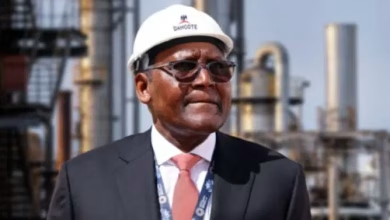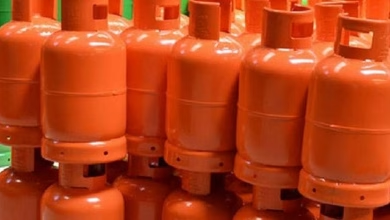
Rising Cost of Cooking Gas Forces Nigerians to Turn to Sawdust and Charcoal
As the cost of cooking gas continues to soar across Nigeria, many families are reverting to alternative cooking methods such as sawdust, charcoal, and firewood to survive.
A Peoples Talk investigation revealed that the traditional cooking methods long abandoned due to modernization are making a strong comeback as households struggle to cope with the skyrocketing prices of Liquefied Petroleum Gas (LPG).
Currently, the price of cooking gas ranges between ₦1,600 and ₦2,000 per kilogram, with many gas stations reporting limited or no supply. The situation has also pushed up the prices of other cooking fuels. A bundle of firewood containing just four pieces now costs between ₦800 and ₦1,000, depending on the location. Similarly, 50kg of wood charcoal sells for ₦13,000 to ₦20,000, while briquette charcoal goes for as high as ₦50,000.
The situation is no better with kerosene, which has risen from ₦80 per litre to between ₦2,000 and ₦2,500 per litre, depending on the area.
Amid these challenges, sawdust — once considered waste — has emerged as a cheap and viable option for many Nigerians.
Mrs. Racheal Durotimi, a herb seller in Lagos, told Peoples Talk that she now relies entirely on sawdust for cooking after the price of cooking gas and charcoal became unbearable.
“I bought two big bags of sawdust for ₦500 and filled them into a big container I constructed as a stove. That’s what I’m using now,” she said.
“How much do I make in a day that I’ll spend all my profit on gas or charcoal? Last weekend, I couldn’t find gas anywhere. The queues were terrible, and the little charcoal I bought for ₦2,000 finished quickly.”
For Mr. Innocent Ogbei, a bricklayer, sawdust became the only option after the price of kerosene skyrocketed.
“All the filling stations in my area had no kerosene. Some attendants said a litre now costs ₦2,000 to ₦2,500,” he lamented.
“I called a friend at the sawmill, and he sent me a bag of sawdust. That’s what I’m using now until the government finds a solution.”
Ogbei recalled that the crisis began after the removal of fuel subsidies during the administration of former President Muhammadu Buhari, which made kerosene unaffordable for most Nigerians.
He noted that even sawdust, which used to be free, now comes at a price due to its growing demand from farmers and households.
“Before now, sawdust was free. But today, a bag costs ₦2,000 because it’s also being bought by farmers for their dairy and crop businesses,” he added.
The worsening cost of cooking fuels highlights the deepening economic hardship in the country, leaving many Nigerians to depend on cheaper, improvised, and often unsafe methods just to cook their daily meals.
— Peoples Talk







